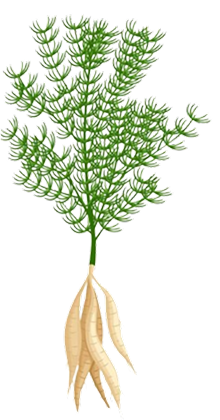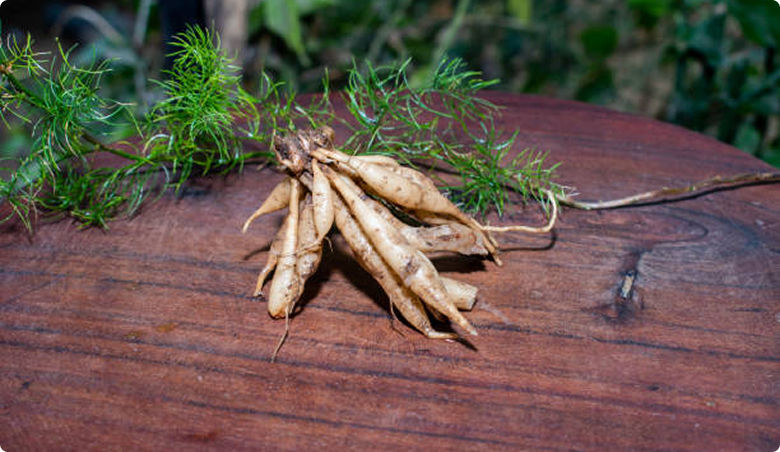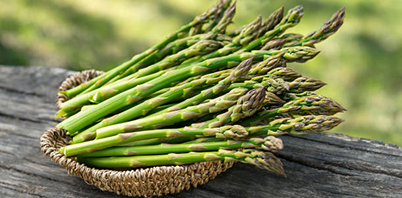

About Shatavari
Botanical name – Asparagus racemosus
Family name – Asparagaceae
English name – Indian asparagus
Common name – Shatavari
Synonyms – Bahupatra, Abheeru, Narayani, Atirasa, Vari, Shatamuli.
Habit – Perennial tree

Ayurvedic Properties
Rasa
Sweet (Madhura), Bitter (Tikta)
Guna
Heavy (Guru), Oily (Snigdha)
Virya
Cold (Shita)
Vipaka
Sweet (Madhura)
Doshakarma
Balances Vata & Pitta Dosh
Health Benefits

Female Wellness & Energy: It supports uterine strength, conception, breastfeeding, and the regulation of hormones.

Revitalising Tonic: It enhances vitality and overall health while providing the body with a revitalising effect.

Antioxidant & Healer of the Gut: It protects from ulcers, reduces oxidative stress, and enhances digestion.

Blood Purifier & Detoxifier: It improves circulation, helps in flushing out toxins, and improves the functioning of the kidney.

Immunity Booster: Builds up immunity and improves the body resistance.

Traditional Uses

For Nursing Mothers:
Drink warm milk mixed with 5g of Shatavari powder daily.

For Rejuvenation (Rasayana Effect):
Encouraging consumption so as to secures health.

For gynecological issues:
Discharges in the vagina are assisted and miscarriage threats are cured. Use with sugar and ghee for menopause.

For menopausal relief:
Take by mixing with honey and ghee
Scientific Research & Studies

- 📊 Antioxidant Defense Augmentation: Superoxide dismutase, catalase & ascorbic acid levels raised.
- 🩸 Lipid Peroxidation Lowering: Oxidative stress prevented.
- 💊 Anti-Gastric Ulcer: Gut-health promoted.


